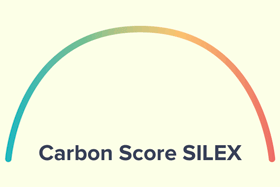Assessment
of your
investment
carbon
impact
A busy climate agenda

Understanding the carbon impact
Climate risk is now predominant due to its probability and consequences. We want to contribute to a better understanding of these issues and are developing tools to understand the climate impact of investments through independent and unified information for all our products.

The SILEX
Carbon Score
To develop our SILEX Carbon Score, we have chosen to work in partnership with independent, recognized data providers. Our proprietary methodology allows for a uniform carbon rating for all our investment vehicles: the SILEX Carbon Score, rated A / B / C or D.

Concrete use
Our mission in sustainable investment is to assist our clients in: - measuring and understanding the impact of their investments - structuring an asset allocation strategy aligned with their sustainability criteria and contributing to solutions to major challenges - implementing this allocation strategy and measuring its financial and non-financial performance
. understanding
Assessing and limiting the carbon impact of investments is both urgent and possible.
. the SILEX carbon Score
SILEX favors a quantitative approach to extra-financial data and relies on partners with historical expertise in carbon impact.
As part of the Silex Carbon Score, we work with independent data, a pioneer in carbon assessments and one of the few players measuring direct, indirect and avoided emissions (scope 1, 2, 3 & 4) of companies. The integration of avoided emissions allows us to integrate a vision of the transition of companies and their dynamics of change.
The SILEX Carbon Score links carbon impact analysis data to its concrete use in investment portfolios, in the form of a readable grade on 4 levels: A / B / C or D.
This information can be made available for all our investment supports (structured products, funds and AMC) for which the data is available. The SILEX Carbon Score provides essential information for integrating sustainability criteria into investments, particularly for structured products: the score integrates the analysis of the support by including each characteristic: underlying, issuer, product terms.
